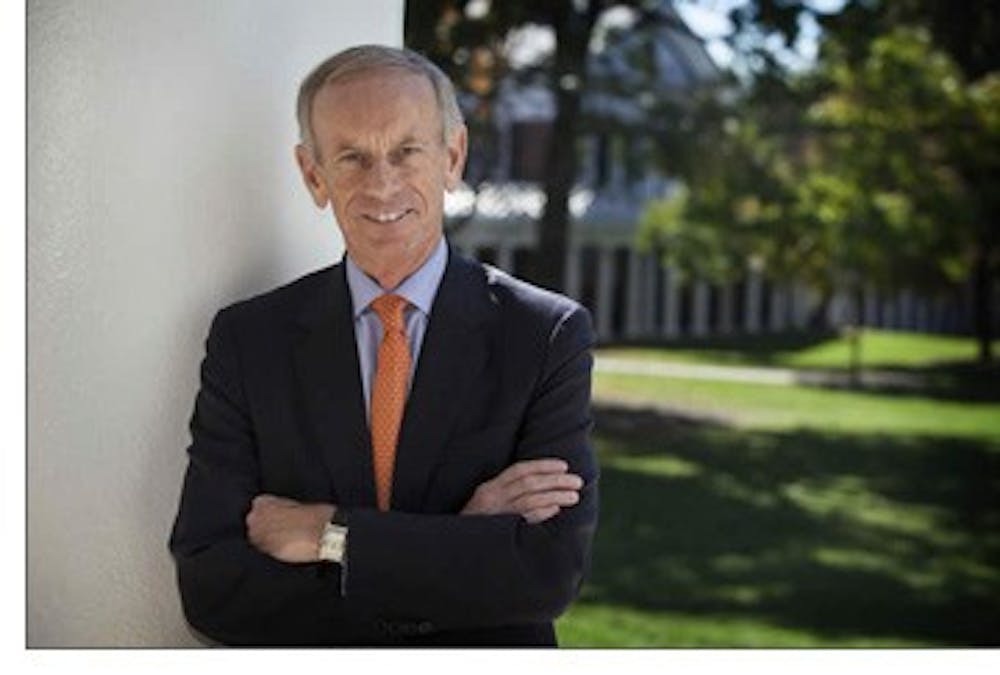State legislators have joined former Rector Helen Dragas in questioning the process which led to the formation of the University’s $2 billion Strategic Investment Fund.
In a Washington Post editorial, Dragas — who called the reserves a “slush fund” — accused administrators of making large transfers of cash prior to the Board of Visitors’ vote on the proposal.
In response, the University’s Chief Operating Officer Patrick Hogan said the fund was created according to procedural rules.
The fund is intended to finance the University’s Cornerstone Plan — an initiative approved in 2013 with an estimated cost of $600 million — to hire new faculty and improve research infrastructure, Hogan said.
“There has been nothing that’s taken place in these funds, these various transactions, that hasn’t been authorized by the board,” Hogan said.
However, Virginia State Senator Chap Petersen said he is concerned about the University’s standing as a non-profit organization, given the fact that it had accumulated a $2 billion surplus — an amount he says is “not normal.”
“The University is a non-profit,” Petersen said. “The money they collected from tuition fees and state support should match the service, and extra funding should be given back to lower the tuition. It does not make sense to have a $2 billion operating surplus while the tuition is higher.”
Kevin Martingayle, Dragas’ attorney, said the issues of tuition price and funding allocation are best settled by experts.
Martingayle also claimed the closed meetings leading up to the establishment of the fund do not reflect the University’s responsibility to make its dealings public under the Freedom of Information Act.
“I think what we’re doing right now is we’re having a timeout,” Martingayle said. “We’re going to take a good, close look at the way the meetings are held, whether they are as public as they’re supposed to be, and then once we make sure we’re complying with the law then we can decide whether or not, on top of what the law requires, there’s a way to be even more open.”
Hogan said although the Strategic Investment Fund did not receive its final name until a February 2016 board vote, planning for the funds had been underway since the previous November.
Hogan said both the board and administrators took the initiative to shore up the University’s financial holdings, a process that included debt restructuring, revised spending distribution and studies that ultimately led to the establishment of the fund.
According to Petersen, the University used its responsibilities under the 2005 Restructured Higher Education Financial and Administrative Operations Act as an excuse for accumulating a surplus of money. The Act gave public educational institutions limited financial autonomy, provided they fulfill certain goals, including attracting outside research funds and making technological breakthroughs with private sector applications.
“The law was meant to allow more entrepreneurship and research-oriented projects in universities,” Petersen said. “But U.Va. has totally twisted it.”
Responding to the inquiry over tuition hikes that have taken place in recent years, Hogan said the University strives for “affordable excellence,” a balance which is difficult to strike.
“We have continued to invest in our AccessUVA program, and we believe that has been very true to our mission as a public university and our responsibility to maintain a very reasonable tuition level,” Hogan said. “[on the other hand] in order to keep the academic experience for our students, in order to attract top faculty and top researchers, we have to continue to invest in the University, and invest in our students and faculty.”
According to Martingayle, the issue is fundamentally one of transparency, particularly given the University’s status as a public institution.
“That is a good, healthy, self-examination discussion that ought to be had,” Martingayle said, referring to the issue of tuition costs. “The only question is, who ought to be having it? And I think the answer is everybody. This is a public institution, which means we have an awful lot of people to answer to.”
Hogan said he was disappointed with Dragas’ claims that the process lacked transparency, and said he welcomes questions regarding the fund.
“I have been in business for over forty years, and I will tell you that I absolutely believe in transparency and that I take my responsibilities as a chief operating officer for the University extremely seriously,” Hogan said.







